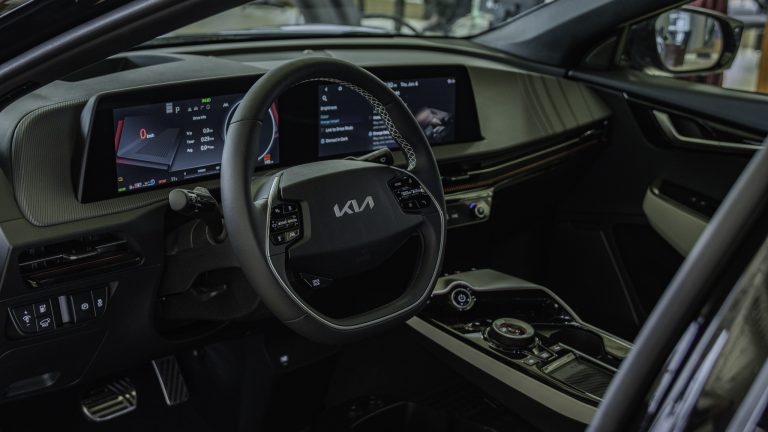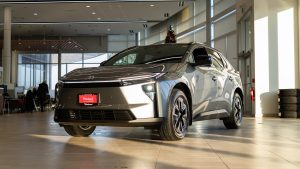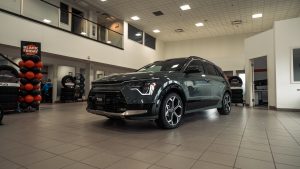Are electric vehicles (EVs) faster than internal combustion engine vehicles? Yes! But how does it work? The answer lies in the fundamental differences between electric and gasoline powertrains, as well as several key technologies that enhance EV performance. Here’s a deep dive into why electric vehicles are so fast and how it works!
1. Instant Torque Delivery
One of the primary reasons electric vehicles are so fast is the nature of electric motors. Unlike internal combustion engines, which need to build up power and torque as RPMs increase, electric motors deliver maximum torque instantaneously from a standstill. This immediate availability of torque translates to rapid acceleration and impressive 0-100 km/h (0-60 mph) times. For example, the Tesla Model 3 can go from 0 to 100 km/h in just 2.9 seconds, the 2024 Volvo EC40 Recharge in 4.8 seconds, and the Hyundai IONIQ 6 in 5.1 seconds.
How it works:
Electric Motors:
When you press the accelerator in an EV, the electric motor responds instantly, delivering full torque to the wheels without any delay.
No Gears:
Most EVs don’t have a traditional multi-speed transmission. Instead, they use a single-speed gearbox that allows for smooth and continuous power delivery, eliminating the time lost in gear shifts.
2. Efficient Power Delivery
Electric vehicles are more efficient at converting energy from the battery into motion. This efficiency means that more of the power generated by the motor is used to propel the car forward, leading to better performance.
How It Works:
Direct Power Transfer:
Electric motors are connected directly to the drive wheels, which prevents energy loss. In contrast, gas vehicles lose a significant amount of power through the drivetrain and exhaust systems.
Regenerative Braking:
EVs often use regenerative braking systems that convert kinetic energy back into stored electrical energy during braking. This process not only extends the range but also provides additional power for acceleration.
3. Advanced Battery Technology
Modern EVs are equipped with high-capacity lithium-ion batteries that provide substantial power to the electric motor. These batteries are designed to deliver large amounts of current quickly, supporting high-performance driving.
How It Works:
High Power Density:
Lithium-ion batteries have a high power density, meaning they can store and release large amounts of energy rapidly. This capability supports quick acceleration and sustained high speeds.
Thermal Management:
Advanced thermal management systems keep the battery at optimal temperatures, ensuring consistent performance even during demanding driving conditions.
4. Optimized Weight Distribution
The design of electric vehicles allows for better weight distribution compared to traditional gas vehicles. The placement of heavy components like the battery pack at the bottom of the vehicle lowers the center of gravity, improving handling and stability.
How It Works:
Low Center of Gravity:
A lower center of gravity enhances cornering performance and reduces body roll, allowing the vehicle to maintain higher speeds through turns.
Balanced Weight Distribution:
Even weight distribution between the front and rear axles improves traction and overall stability, contributing to faster and more controlled driving.
5. Technological Advancements
Electric vehicles benefit from cutting-edge technology that enhances their performance. These advancements include sophisticated power electronics, advanced driver-assistance systems, and aerodynamic designs.
How It Works:
Power Electronics:
Power inverters and controllers manage the flow of electricity from the battery to the motor, optimizing performance and efficiency.
Driver Assistance:
Features like launch control and torque vectoring systems help maximize acceleration and improve handling.
Aerodynamics:
EVs are often designed with aerodynamics in mind, reducing drag and improving efficiency at high speeds.

Electric vehicles are inherently faster than gas vehicles due to their instant torque delivery, efficient power transfer, advanced battery technology, optimized weight distribution, and cutting-edge technological advancements. These factors combine to create a driving experience that is both exhilarating and efficient. As EV technology continues to evolve, we can expect even more impressive performance capabilities from electric vehicles in the future!


